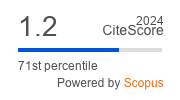Symbiotic Trauma Among Children Growing Up in Migrant Worker Families: Psycholinguistic Aspect
Keywords:
symbiotic trauma, family, emigration, adolescence, narration, psycholinguistic aspect.Abstract
The article is dedicated to the problem of adolescents growing up in families where parents have emigrated for working reasons. The theoretical part and the summary of the study are based on the theory of symbiotic trauma by F. Ruppert. Ruppert’s theory of the symbiotic trauma is one of the key theories explaining the mechanism of trauma and is based on symbiotic needs disorder. Long term labour migration of parents is a traumatic situation for the whole family, both spouses and children. The connection between long-term absence of parents for labour migration reasons and the occurrence of trauma among adolescents is analysed in the article in the context of F. Ruppert’s theory of symbiotic trauma. The experimental part is based on the narrative approach. The comparative analysis of the results of the narration of adolescents from different types of families is represented in this part. Great attention is paid to the analysis of narration of teenagers whose parents are working emigrants. The fragments of narration of adolescents whose parents are emigrant workers are introduced here and they express a vivid symbiotic need of teenagers from the families with a syndrome of migratory separation.
References
- Bera, R. (2008). Aksjologiczny sens pracy a poczucie jakości życia młodych migrantów
polskich, Lublin: Wydawnictwo Uniwersytetu Marii Curie-Skłodowskiej. - Chuchra, M., Sobieszek, M. (2011). Małżeństwo i rodzina w sytuacji rozłąki z powodu
migracji zarobkowej (pp. 247 – 263), In: J. Jęczeń, M. Stepulak (eds.), Wartości i Dobro Rodziny.
Lublin: Wydawnictwo KUL. - Cierpka, A. (2011). Tożsamość narracyjna młodzieży a relacje w rodzinie, In: E. Dryll,
A. Cierpka (eds.), Psychologia Narracyjna (pp. 149 – 166), Warszawa: Eneteia. - Danilewicz, W. (2010). Rodzina Ponad Granicami. Transnarodowe Doświadczanie
Wspólnoty Rodzinnej. Białystok: Trans Humana. - Danilewicz, W. (2006). Sytuacja Życiowa Dzieci w Rodzinach Emigracyjnych.
Białystok: Trans Humana. - Durkalevych, I. (2012). „Zarówno tu, jak i tam?”. Ku problemowi współczesnego
macierzyństwa transnarodowego, In: M. Boczkowska, E. Tymoszuk, P. Zielińska (eds.),
Wychowanie. Profilaktyka. Terapia. Szanse i zagrożenia (pp. 115 – 129), Kraków: Oficyna
Wydawnicza „Impuls”. - Izdebsk,a J. (2009). Postrzeganie przez migrantów wspólnotowości domu rodzinnego,
In: J. Nikitorowicz, J. Muszyńskа, M. Sobecki (eds.). Wspólnoty z Perspektywy Edukacji
Międzykulturowej (pp. 44 – 53)., Białystok: Trans Humana. - Krejtz, I., Krejtz, K. (2005). Metoda analizy treści – teoria i praktyk badawcza, In:
K. Krejtz, K. Stemplewska-Żakowicz (eds.), Wywiad Psychologiczny (pp. 129 – 149), Warszawa:
Pracownia Testów PTP. - Kvale, S. (2010). Prowadzenie Wywiadów (tł. A. Dziuban), Warszawa: Wydawnictwo
Naukowe PWN. - Nowakowska, A. (2009). Wpływ migracji zarobkowej na jakość życia rodzinnego, In:
T. Rostowska (ed.) Psychologia Rodziny. Małżeństwo i Rodzina Wobec Współczesnych Wyzwań
(pp. 101 – 116), Warszawa: Wydawnictwo Difin. - Oleś, P. (1997). Dynamiczne Self implikacje dla zjawiska autodestrukcji, In: P. Oleś
(ed.), Wybrane Zagadnienia z Psychologii Osobowości (pp. 283 – 299), Lublin: Towarzystwo
Naukowe: KUL. - Pielkowa, J. (1983). Rodzina Samotnej Matki Jako Srodowisko Wychowawcze.
Katowice: Wydawnictwo Uniwersytetu Śląskiego. - Runyan, W. M. (1992). Historie Zycia a Psychobiografia. Badania Teorii i Metody
(przetłumaczył J. Kasprzewski), Warszawa: Wydawnictwo Naukowe PWN. - Ruppert, F. (2012). Symbioza i Autonomia. Trauma Symbiotyczna i Miłość Bez Uwikłań
(przełożył Z. Mazurczak), Warszawa: Wydawnictwo Czarna Owca. - Stańkowski, B. (2006). Zarobkowe migracje rodziców za granicę. Ruch Pedagogiczny,
1–2, 51–66. - Taylor, L. K., Weems, C. F. (2009). What do youth report as a traumatic event? Toward
a developmentally informed classification of traumatic stressors, Psychological Trauma, 1, 91–
106. - Wiese, E. B. P. (2010). Culture and migration: psychological trauma in children and
adolescents, Traumatology, 16, 142–152. - Żurko, M. (1995). O przydatności metody biograficznej w psychologii, In: M. StraśRomanowska (ed.), Na Tropach Psychologii Jako Nauki Humanistycznej (pp. 98 – 109),
Warszawa – Wrocław: Wydawnictwo Naukowe PWN.







 Creative Commons «Attribution» 4.0
Creative Commons «Attribution» 4.0